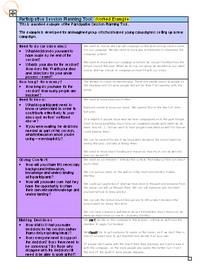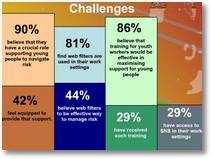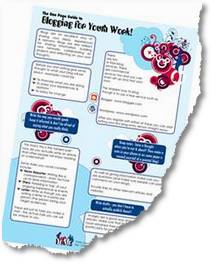Last year I spent an afternoon working with a number of charities who had come together to plan a residential that would involve a few young people linked to each organisation working together planning a shared social change campaign. We were talking about the different things that event organisers need to think about when bringing together a diverse group to make big decisions.

It quickly became clear that to make the residential sessions truly participative so that everyone could have an equal chance to be heard and to influence decision making and to make the sessions truly effective so that they could lead to solid decisions everyone could work with, all within in a tight timescale required a lot of planning and forward thought.
On the train home from that meeting, I tried to capture as many of the different aspects that need to be considered in planning an effective participative session with young people in a simple session planning tool (and, as with all youth-participation tools, I’m sure it has a lot to offer in terms of running sessions with adults as well).
From the tool itself:
This tool is designed to help you think about planning a focused session with young people or community groups. A session may be stand-alone, or may be part of a longer process, day or residential. It encourages you to think about the purpose of the session; the information and understandings of context that participants need in order to make informed decisions; and how you come to a group decision that everyone understands and can move forward from.
I’ve attached a copy of the tool to the bottom of this blog post as a word document and it is made available under a creative commons licence which means you can use and adapt it freely as you desire.
I’m not usually one for creating form-filling exercises, but its crucially important to put thought into effective participation sessions, and sometimes using planning tools can be effective in supporting that. I’ve certainly found it useful as a checklist to remind me to think about the whole picture when I’m planning consultations. I’d love to hear if you do make use of the tool, or if you’ve any suggestions for how it could be improved.
Attachment: Participative Session Planning Tool – 0.2 .doc
 On Monday I gave a presentation to the Ofcom/Oxford Internet Institute seminar on Social Networks about some of what we have discovered so far in the Youth Work and Social Networking research project.
On Monday I gave a presentation to the Ofcom/Oxford Internet Institute seminar on Social Networks about some of what we have discovered so far in the Youth Work and Social Networking research project.

 Two of the reasons I gave in my recent post '
Two of the reasons I gave in my recent post '